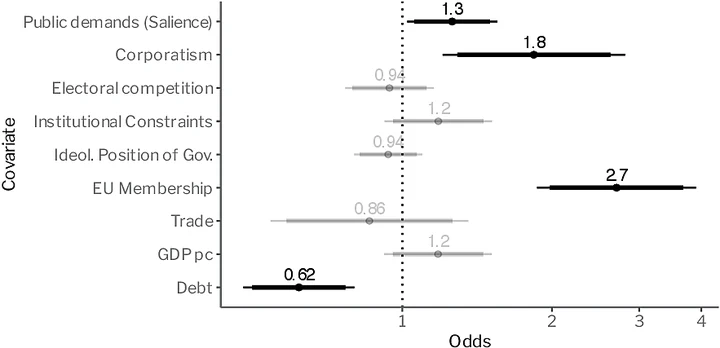Testing Theories of Policy Growth: Public Demands, Interest Group Politics, Electoral Competition, and Institutional Fragmentation
 Determinants of environmental policy growth.
Determinants of environmental policy growth.
Abstract
Policy growth is a ubiquitous feature of modern democracies that has attracted increased attention in political science and beyond. However, the literature is characterized by considerable disagreement on why policy growth occurs. Existing explanations center on the influence of (1) public demands, (2) interest group politics, (3) electoral competition, and (4) institutional fragmentation. While all four explanations are plausible, there are no studies that assess their relative explanatory power within a single empirical analysis. This article provides such an analysis by examining the drivers of policy growth in 21 OECD countries from 1976 to 2020 in the area of environmental policy. We identify strong ties between organized interests and the government as the primary driver of policy growth. Public demands and institutional fragmentation are relevant but comparatively less important factors, while the intensity of electoral competition has no influence on policy growth. These findings have important implications for our understanding of the functioning of democracy in the long run.
Online appendix
The online appendix contains an extension of the procedures and results presented in the paper